Conflict
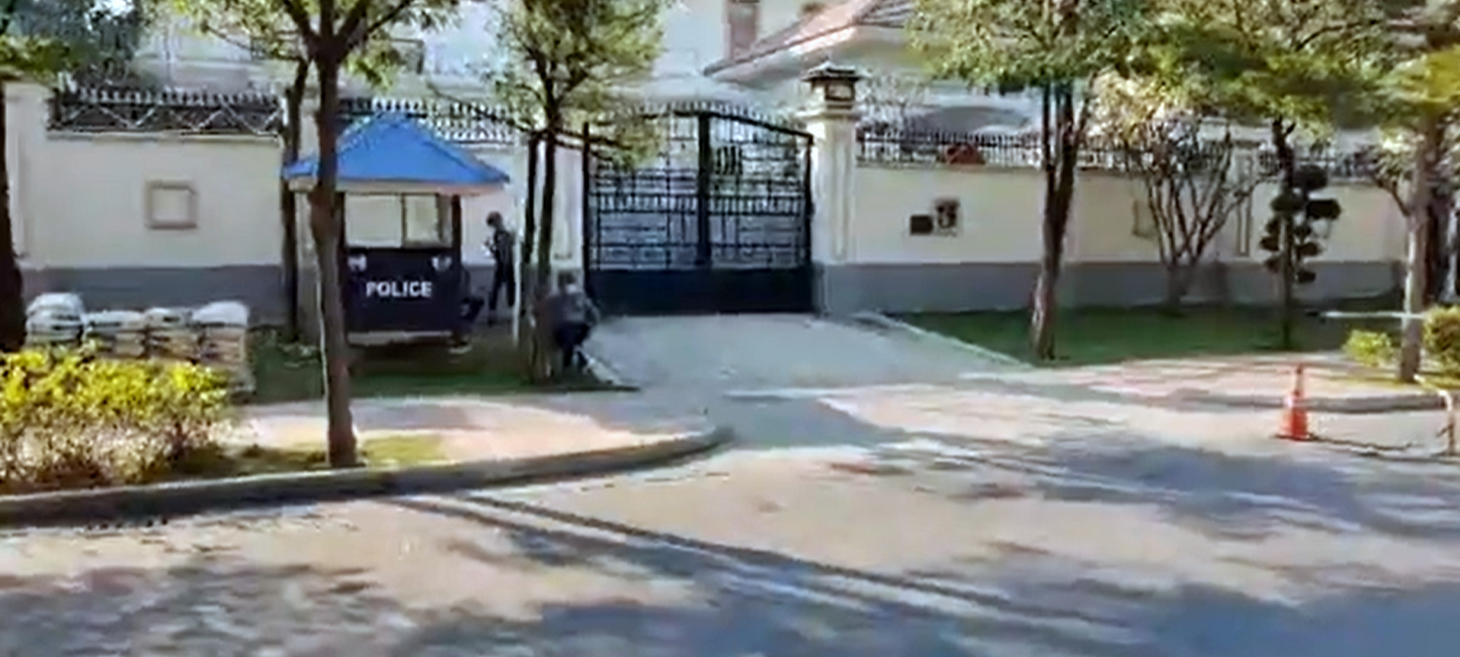
Who Bombed the Chinese Consulate in Myanmar’s Mandalay?
The article from The Irrawaddy discusses the bombing of the Chinese consulate in Mandalay, Myanmar, which occurred on October 19, 2024. The attack involved an explosive device thrown from a passing vehicle, causing damage to the consulate building but no casualties. The incident has heightened tensions between Myanmar and China, with both countries expressing concern over the safety of diplomatic missions. While no group has claimed responsibility, the attack is suspected to be linked to ongoing conflicts in Myanmar, where various ethnic armed groups and resistance forces are active. The Myanmar military junta, which has been facing widespread opposition since the 2021 coup, has been accused of failing to ensure security, further complicating the already strained relations with China, a key ally and economic partner. The bombing underscores the volatile security situation in Myanmar and the potential implications for regional stability.
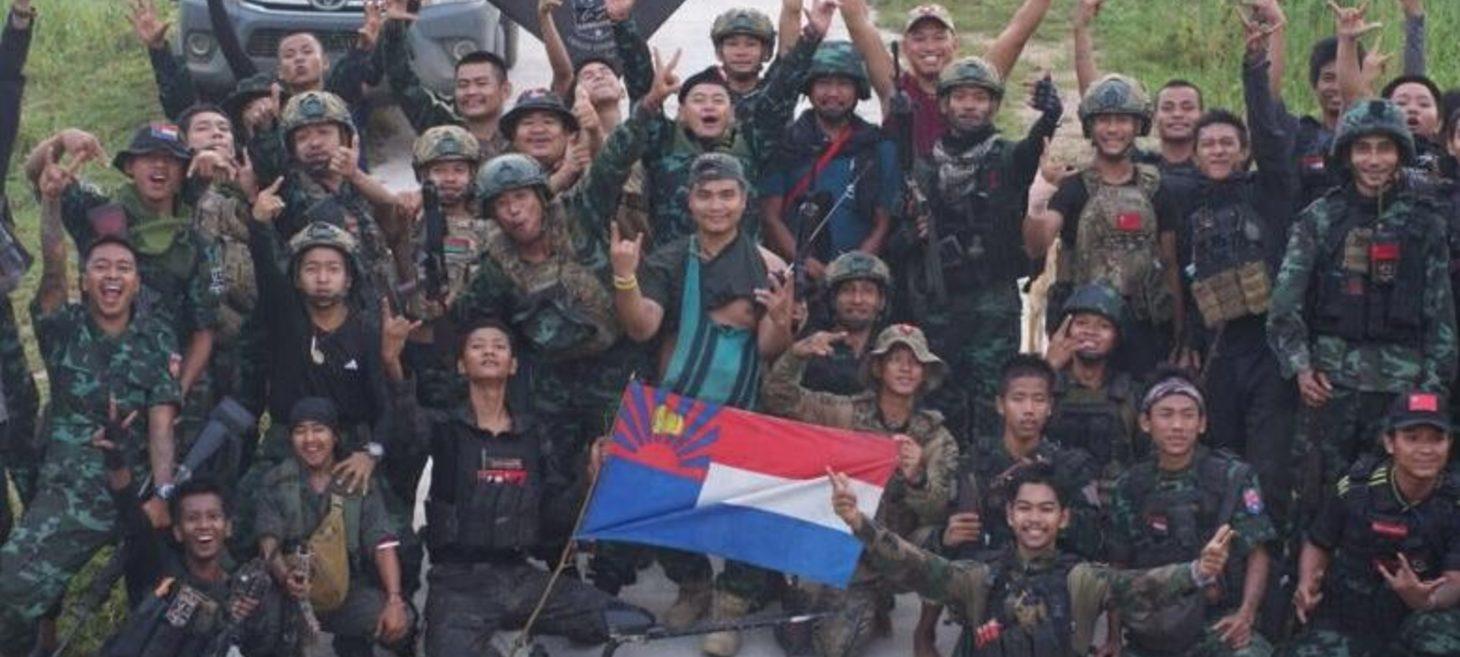
KNLA Coalition Takes Junta Artillery Base in Lay Kay Kaw, Karen State
On October 21, 2024, a coalition led by the Karen National Liberation Army (KNLA) successfully captured a strategic Myanmar military artillery base in Lay Kay Kaw, Karen State. The operation, which began at 4 am, involved intense fighting and resulted in the seizure of significant weaponry, including 120mm mortars and ammunition. The coalition forces, comprising KNLA Brigade 6, Karen National Defense Organization, and People’s Defense Forces, faced resistance from about 100 Myanmar Army soldiers. The capture of this base is considered a major victory, as it was a key artillery position used by the military to attack resistance forces and civilian areas. This development is part of ongoing efforts by ethnic armed organizations and resistance groups to challenge the military junta’s control in various parts of Myanmar, particularly in border regions.

Chinese Consulate in Mandalay Targeted
The Chinese consulate in Mandalay, Myanmar, was targeted in an attack involving a grenade launcher, which resulted in damage to the building but no casualties. This incident is part of a broader pattern of increasing anti-Chinese sentiment in Myanmar, fueled by perceptions of China's support for the military junta following the February 2021 coup. The attack underscores the growing tensions and instability in the region, as well as the challenges faced by foreign diplomatic missions in Myanmar amidst the ongoing conflict and civil unrest.
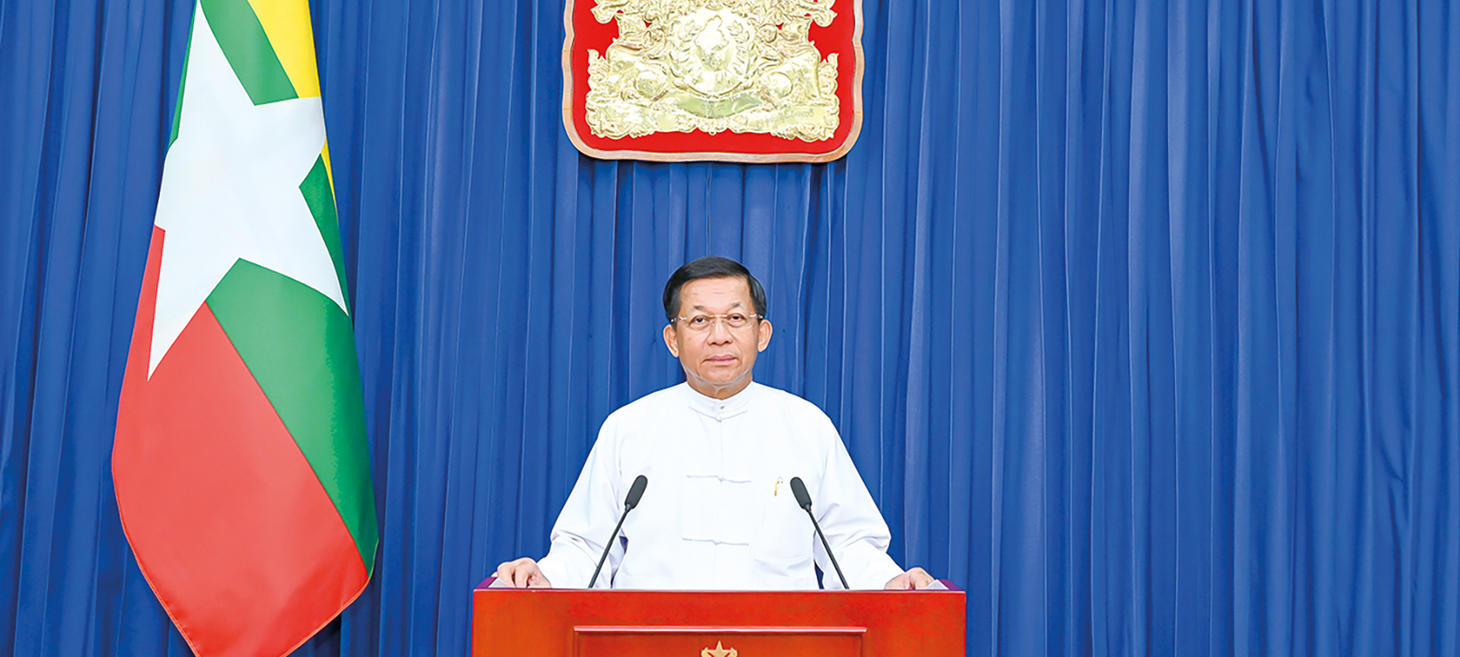
Junta Boss Repeats Vow to Crush Armed Opposition
Myanmar's junta leader has reiterated his commitment to crushing armed opposition groups, emphasizing the military's determination to eliminate resistance forces. This statement comes amid ongoing conflict and instability following the military coup in February 2021, which has led to widespread armed rebellion by ethnic groups and pro-democracy fighters. The junta's aggressive stance highlights the continued tensions and challenges in restoring peace and stability in the country. Despite the junta's efforts, the opposition remains resilient, contributing to the ongoing turmoil in Myanmar.
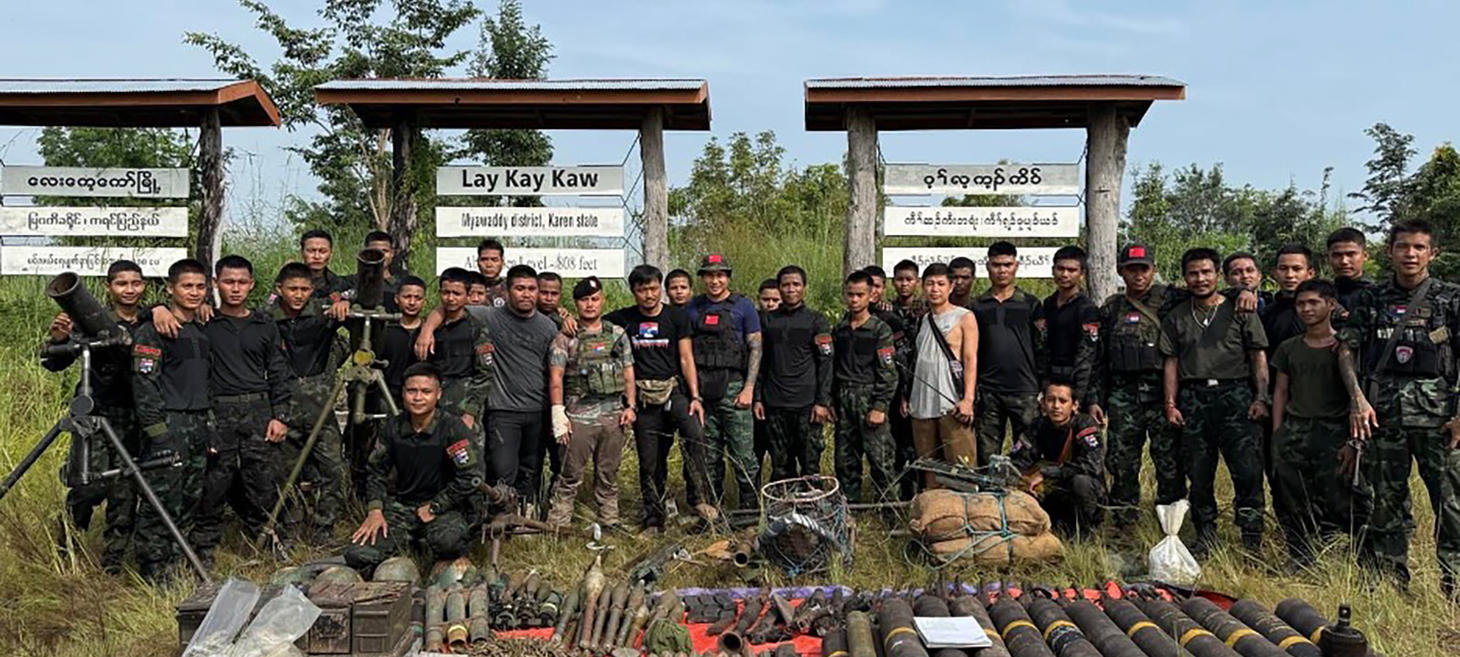
Karen Resistance Seizes Key Junta Stronghold Near Myawaddy
The Karen National Liberation Army (KNLA) recently captured a key military base near Myawaddy, a strategic town on the Myanmar-Thai border, but the situation remains complex. While the KNLA's offensive was initially seen as a significant victory against Myanmar's military junta, the town itself was never fully under their control. Instead, the Border Guard Forces (BGF), led by Colonel Saw Chit Thu, maintained control and facilitated the junta's return to the base. The BGF, known for its criminal activities and alliances with the military, played both sides to protect its interests. This dynamic underscores the intricate power struggles in the region, with the BGF leveraging its position to maintain influence and control over lucrative criminal enterprises, while the KNLA continues to challenge the junta's authority.
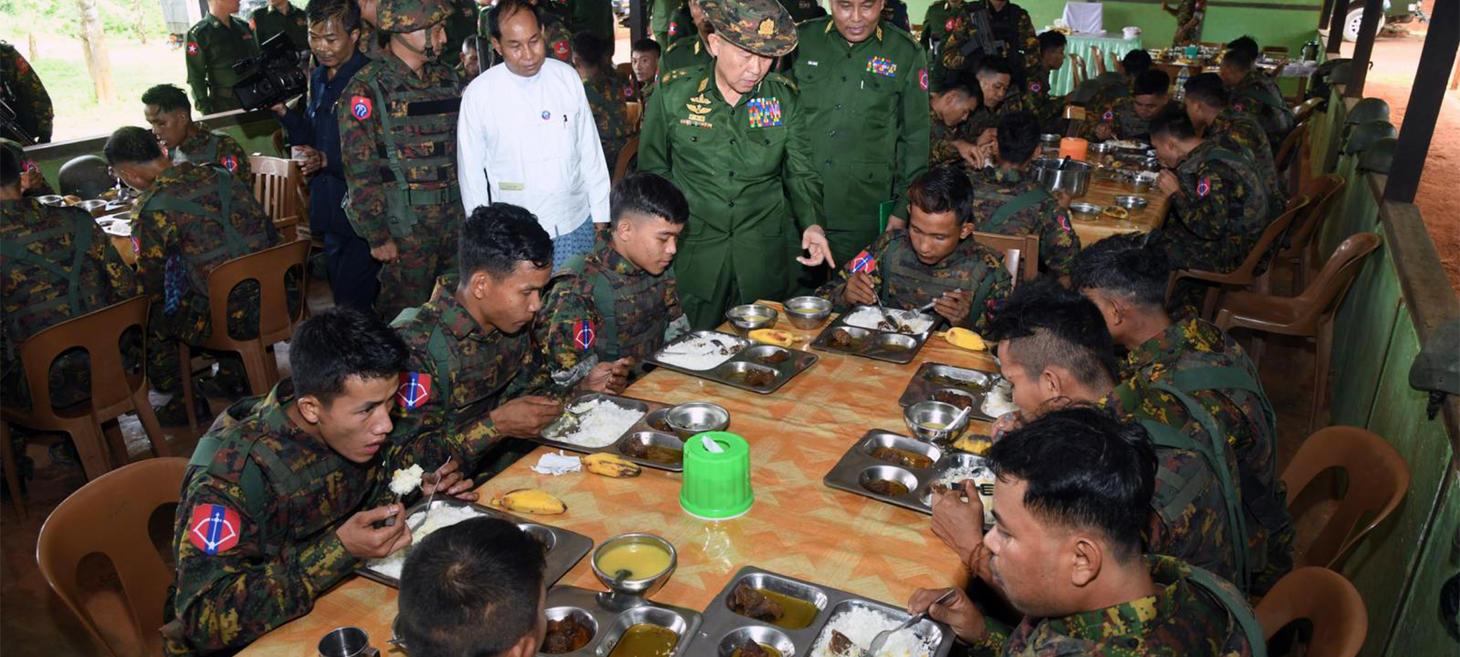
Myanmar Regime Gearing Up for Sagaing Counteroffensive: Analysts
Myanmar's military regime is reportedly preparing a counteroffensive in the Sagaing region, a stronghold of resistance forces, as it faces increasing pressure from coordinated attacks by ethnic armed groups and the People's Defense Forces (PDF). The regime's strategy involves deploying additional troops and resources to regain control over territories lost to the resistance. This move comes amid a broader context of the military losing ground across the country, with resistance forces gaining strength and coordination. The regime's efforts to launch a counteroffensive highlight the ongoing and intensifying conflict in Myanmar, as the military struggles to maintain its hold on power amidst widespread opposition and territorial losses.
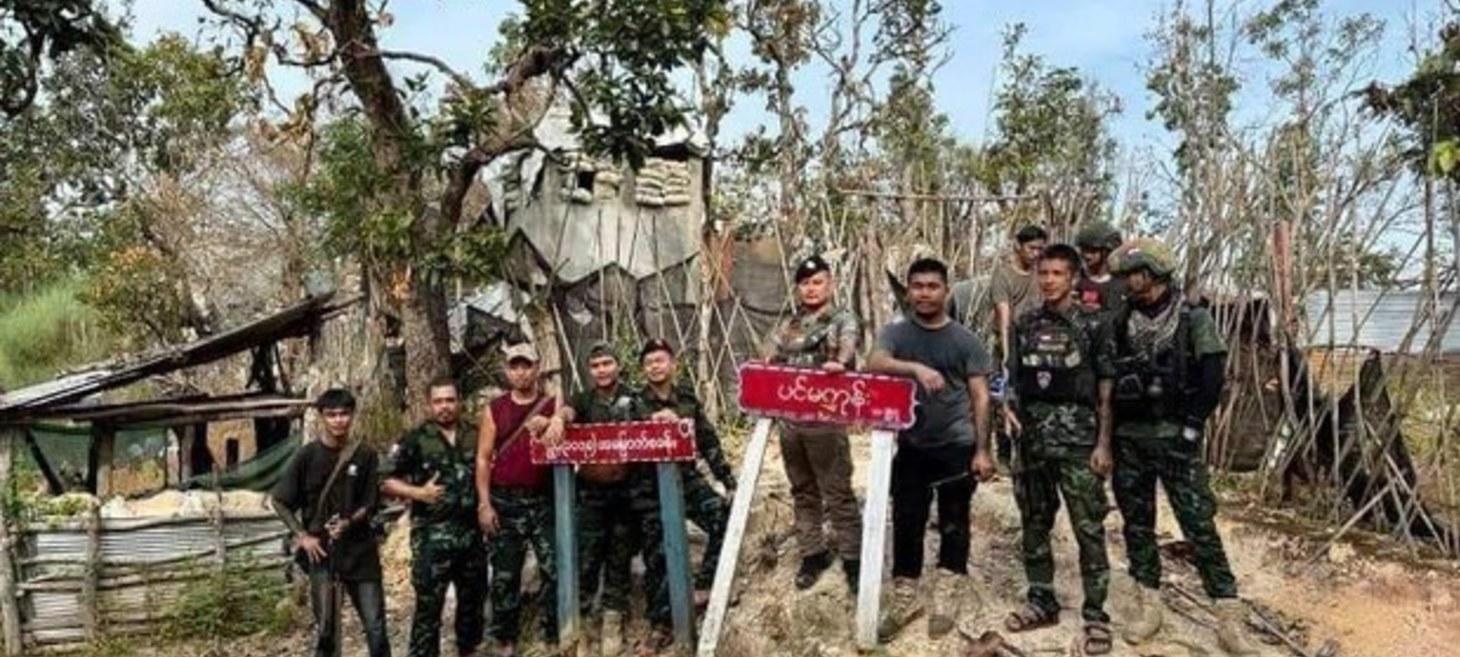
Border town ‘out in the open’ as ethnic army captures Myanmar junta camp
The Karen National Liberation Army (KNLA), the military wing of the Karen National Union, captured a strategic junta base near Lay Kay Kaw village in Kayin State, close to the Thai border. This base, known as Swe Taw Kone, is crucial for the junta's control over the nearby trade hub of Myawaddy. The KNLA's attack involved heavy weaponry, resulting in the capture of prisoners and seizure of weapons, although many junta soldiers, including a commander, managed to escape. The KNLA has warned of potential airstrikes as junta planes have been scouting the area since the capture. This victory is part of the KNLA's ongoing efforts to gain control in Kayin and Mon states following the 2021 military coup in Myanmar. The junta has not commented on the loss, and the KNLA continues to pursue the escaped soldiers.
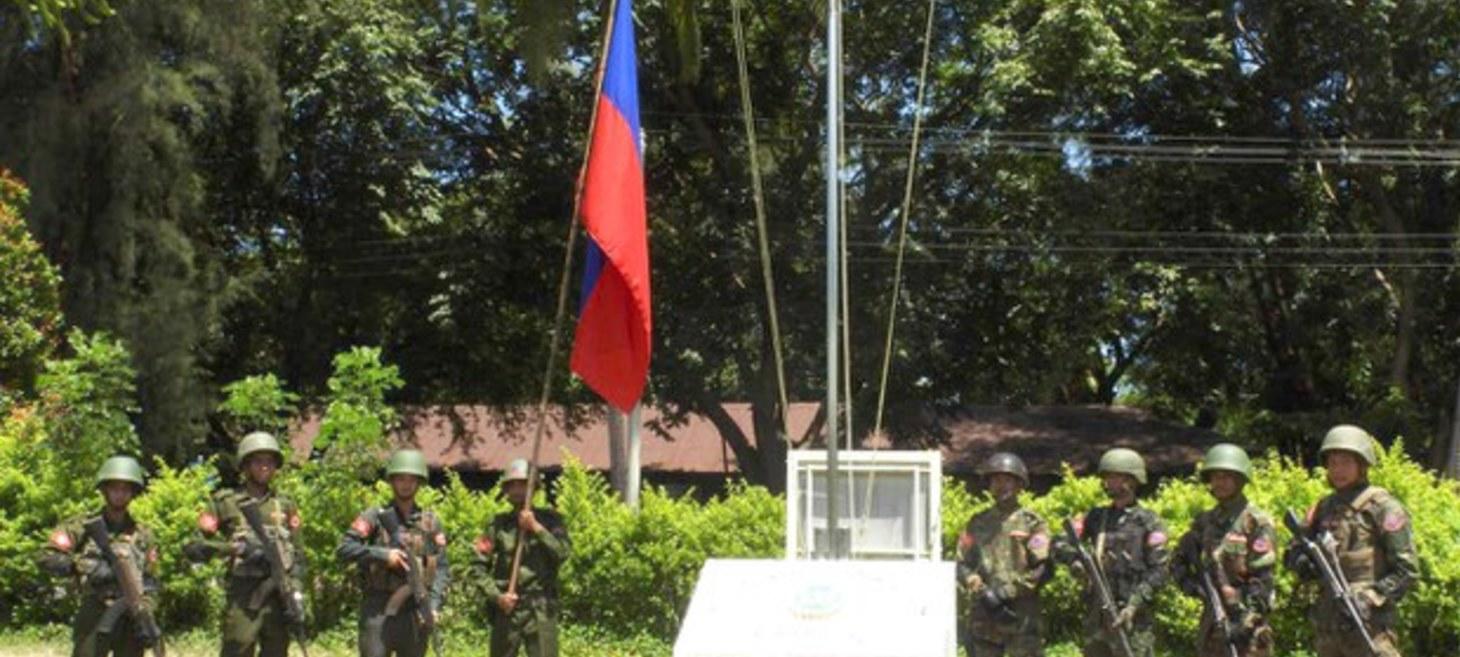
Rebel army advances on junta’s western headquarters in Myanmar’s Rakhine state
Heavy fighting is ongoing in Myanmar's Rakhine State between junta troops and the Arakan Army (AA), an ethnic rebel group seeking self-determination for the Rakhine people. The AA has gained control over significant territory in Rakhine, holding 10 of the state's 17 townships and one in Chin State since the military coup in February 2021. Recent clashes intensified after the AA launched an offensive on September 26, capturing strategic hills in Ann Township. The fighting is now close to the junta's Western Regional Military Command, with both sides using heavy weaponry and airstrikes. Civilians are trapped in the conflict, facing shortages of food, medicine, and skyrocketing gasoline prices. The junta has restricted movement, preventing residents from fleeing the area. The AA's campaign marks a significant challenge to the junta's control, as it aims to be the first rebel group to seize an entire state. The conflict has resulted in numerous civilian casualties due to junta airstrikes in September.
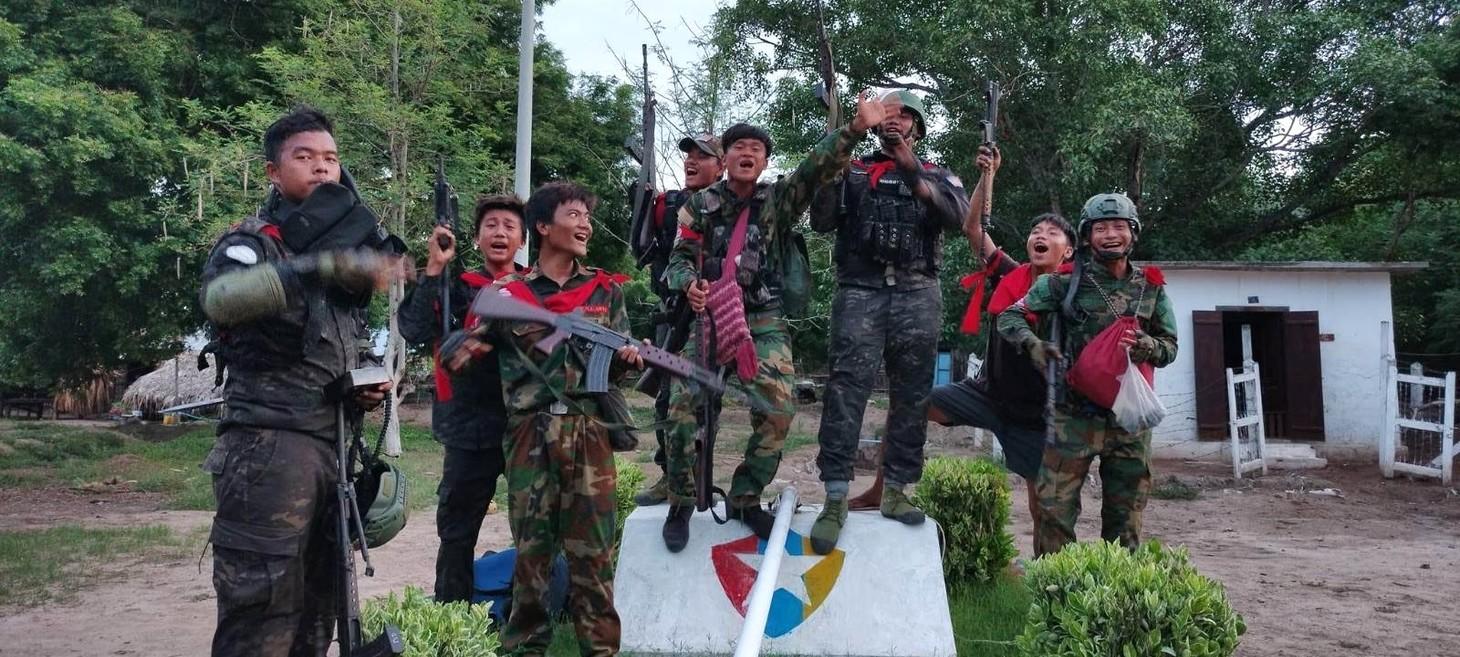
Myanmar junta’s offensive west of Mandalay faces stiff resistance
Myanmar's military junta is facing strong resistance in its offensive against anti-regime forces in Ngazun Township, west of Mandalay. Despite a significant show of force, the junta has been unable to capture the key town of Ngan Myar Gyi, which remains under the control of local resistance groups, including the Zarmani Guerrilla Force. The junta's forces, advancing from the south, were intercepted and forced to retreat. This is part of a broader offensive involving two military columns attempting to seize control of the area. The ongoing clashes highlight the junta's struggles to suppress resistance movements in the region.

Myanmar junta, Chin resistance forces engage in fierce clashes near Chin State capital
Fierce clashes have erupted between Myanmar's military junta and Chin resistance forces near the capital of Chin State, Hakha. The fighting began when junta troops launched an offensive from Hakha towards Thantlang, involving ground attacks, artillery fire, and airstrikes. The Chinland Defense Force-Thantlang, one of the resistance groups, reported ongoing close combat and airstrikes by junta jet fighters. The conflict has intensified since the Chin resistance ended a ceasefire following the 2021 military coup. Civilians in the area are trapped, facing shortages of food and medicine, with transportation hindered by soaring gasoline prices. The junta has restricted movement, preventing residents from fleeing the conflict zone. The situation remains tense as the resistance forces continue to challenge the junta's control in the region.
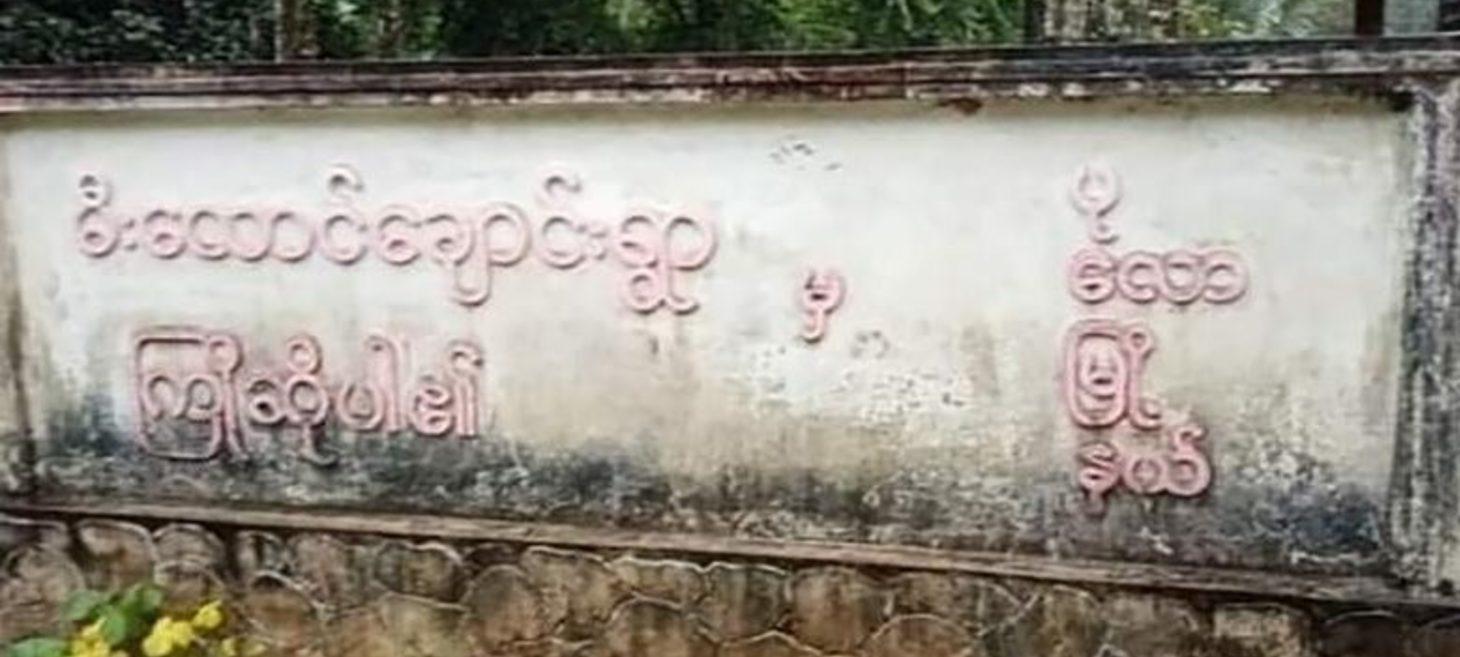
Junta launches offensive in Palaw Township, Tanintharyi Region
On 14 October, the junta launched an offensive at 8:00 am, seizing land from resistance forces near the Union Highway outside Meelaungchaung Village. Despite the offensive, the Palaw People's Defence Force (PDF) reported that the junta troops have not advanced further, resulting in a standoff as resistance forces maintain control of villages along the highway. The ongoing conflict has prompted villagers from Meelaungchaung and nearby Kyerwa Village to flee due to safety concerns. Previously, in August 2024, the Karen National Defence Organisation (KNDO) and allied forces had taken control of Meelaungchaung Village. Some resistance groups believe the junta aims to capture the village to collect census data, as they have only managed to gather such data in limited areas of Palaw Township, with the census scheduled from 1 to 15 October.
Conscription
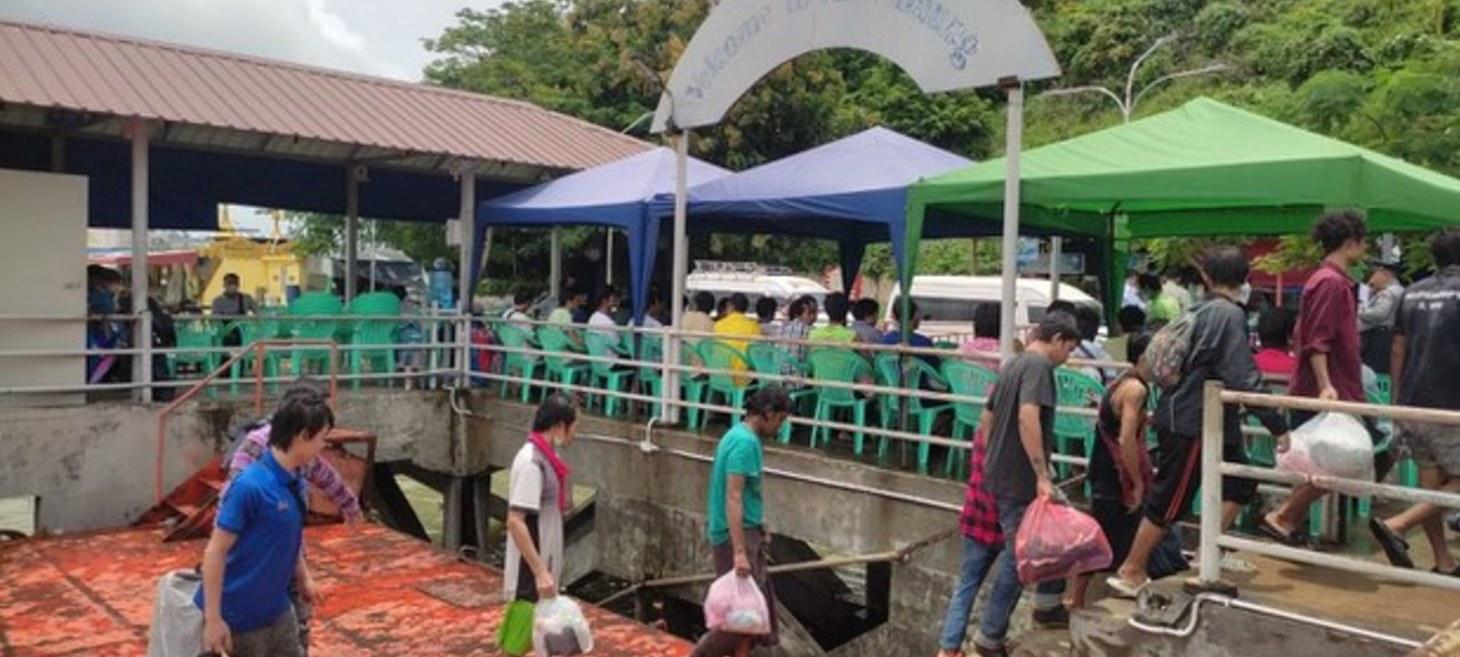
Myanmar deportees from Thailand abducted for military services
Myanmar's junta has been forcibly recruiting migrant workers deported from Thailand for illegal entry and visa overstays, with reports of at least five incidents in recent weeks. These actions are part of the junta's efforts to bolster its ranks amid significant losses to rebel groups and mass surrenders. Under a conscription law enacted in April, men aged 18-35 and women aged 18-27 must serve at least two years in the military, prompting many young people to flee to Thailand. During a crackdown, Thai authorities detained nearly 200,000 Myanmar nationals, deporting around 1,400 back to Myanmar. Some deportees were forced into military service upon return, while others were released after paying large "ransoms" to the military. Human rights activists have condemned these forced recruitments as violations of international law and called for sanctions against the junta. The National Unity Consultative Council has urged Thailand to halt deportations, equating them to forcing individuals into military service.

Myanmar junta’s second-in-command accelerates forced recruitment of civilians into frontline service
Myanmar's junta, led by Vice-Sen-Gen Soe Win, is accelerating the forced recruitment of civilians into frontline military service amid ongoing conflicts. During an emergency visit to the Northwestern Regional Military Command in Sagaing Region, Soe Win ordered expedited basic training for civilian recruits to support combat troops. This move follows the junta's recent loss of the town of Pinlebu to armed resistance forces. Under the junta's "People's Security System" plan, civilians are being conscripted to provide security and intelligence for military operations. The forced recruitment highlights the junta's struggles to maintain control and bolster its ranks as it faces increasing resistance across the country.
Economy
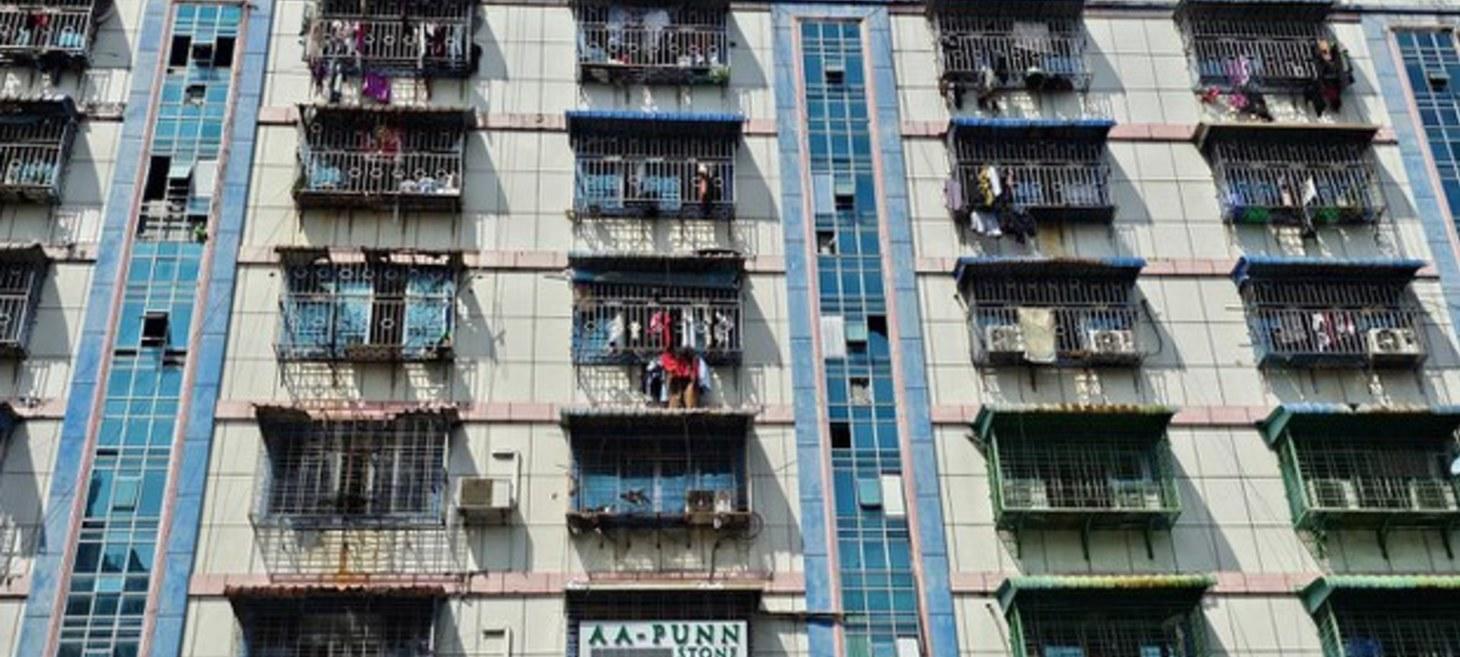
Real estate prices skyrocket as Yangon swells with Myanmar’s displaced
Myanmar's civil war has significantly increased housing demand in Yangon, leading to skyrocketing rents as people displaced by conflict in remote border regions seek safety in the city. The military coup in February 2021 triggered widespread rebellion, displacing approximately 3.1 million people, swelling Yangon's population from 5.6 million to nearly 10 million. This influx has caused a housing shortage, with rents nearly doubling since early 2023. Real estate agents report that studio apartment rents have risen from 300,000 kyats (US$145) to 500,000 kyats (US$240) per month, forcing many to move to the city's outskirts. The increased demand has also driven up property sale prices, with some homes and apartments seeing significant price hikes. The junta's spokesperson for Yangon region announced plans to expand housing projects to accommodate the growing number of displaced persons, highlighting the ongoing migration trend from rural to urban areas.
Foreign Affairs
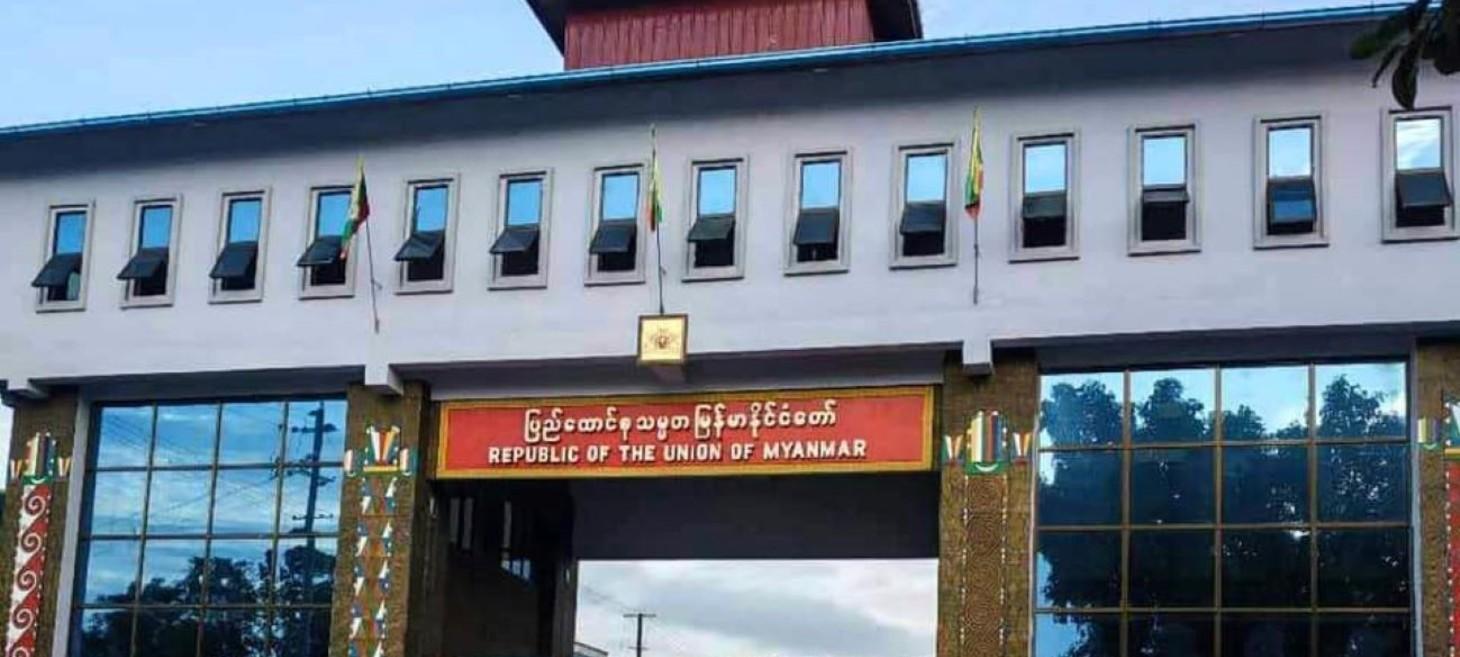
China closes more Myanmar border crossings as Kachin armed group steps up offensive
China has closed all border crossings connected to territories controlled by the Kachin Independence Organisation (KIO) in response to the group’s ongoing offensive against Myanmar’s military junta. This closure was implemented on Saturday after the KIO refused a Chinese request to halt its military operations during a meeting with Chinese diplomats in Yingjiang, Yunnan Province. The situation intensified when the Kachin Independence Army (KIA), the KIO’s military wing, reportedly captured the border town of Pangwa in Kachin State following intense fighting with junta troops. Sources indicate that China is displeased with the KIA’s continued military actions, highlighting the complex dynamics between China, ethnic armed groups in Myanmar, and the ongoing conflict with the military junta.
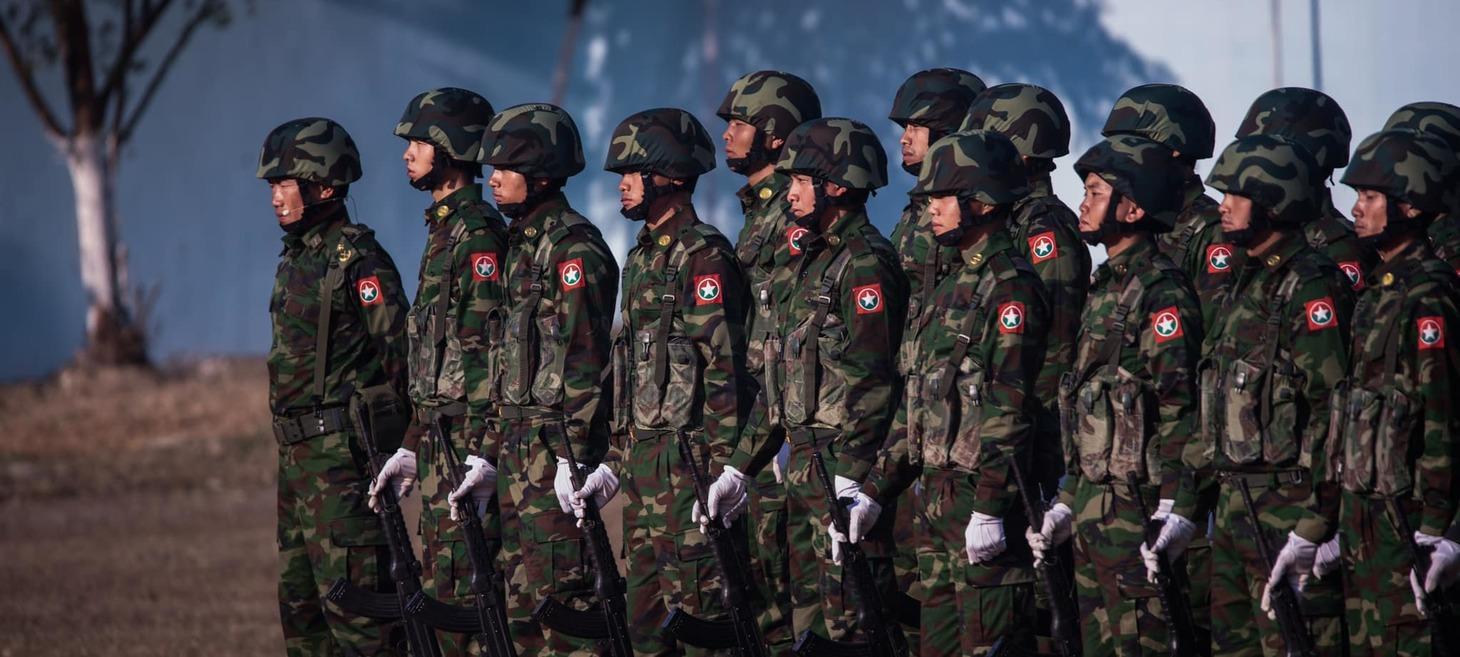
Chinese envoy holds talks with Kachin armed group after fall of rare-earth mining town
A senior Chinese diplomat, Deng Xijun, met with leaders of the Kachin Independence Organisation (KIO) following their recent capture of Chipwe, a town in northern Kachin State known for its significant rare-earth mining operations. The meeting took place in Yingjiang, China, near the KIO's headquarters in Laiza, Myanmar. Deng reportedly urged the KIO to cease their offensive against Myanmar's military junta, as the Kachin Independence Army (KIA), the KIO's armed wing, had recently seized key outposts in Chipwe Township from a Border Guard Force allied with the junta. This diplomatic engagement highlights China's interest in stabilizing the region, particularly given the strategic importance of rare-earth resources.
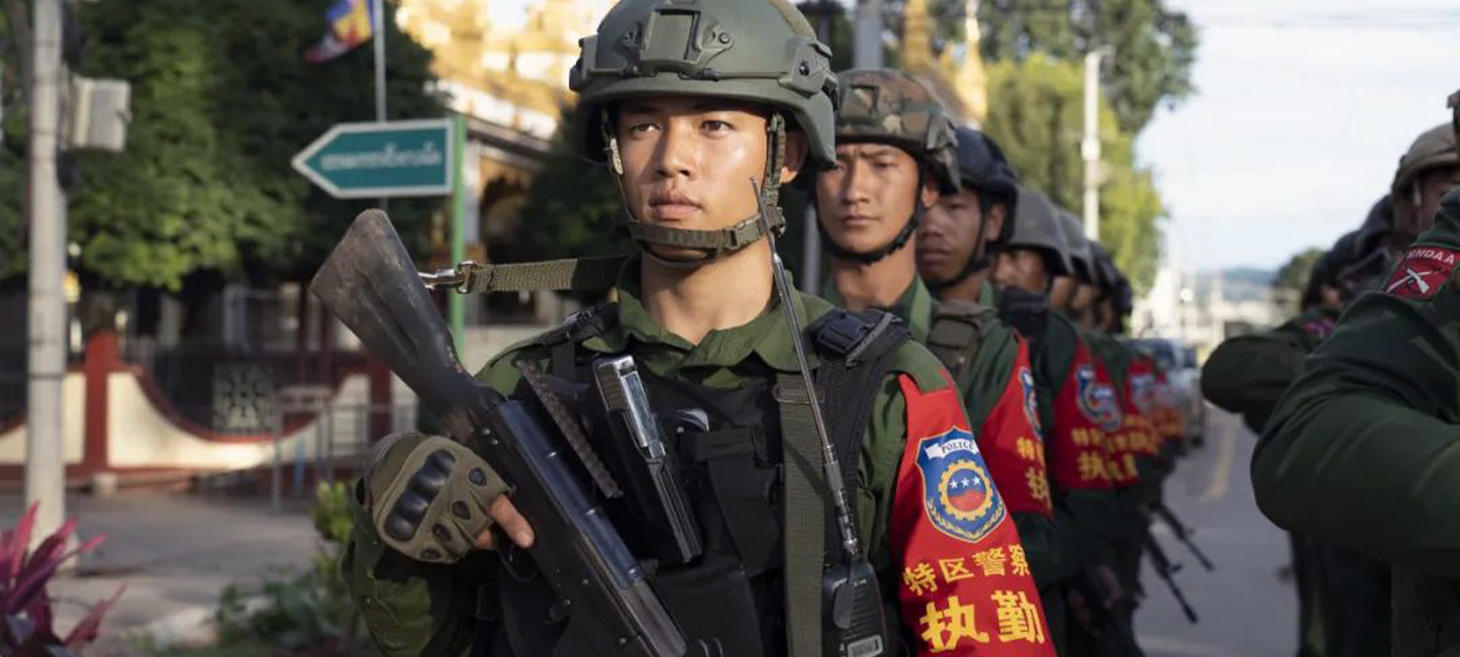
Is China Really Pulling the Strings of Myanmar’s Ethnic Armies?
The analysis explores China's influence over Myanmar's ethnic armed groups, particularly in the context of the ongoing conflict following the military coup in February 2021. China has been strategically engaging with ethnic armed organizations (EAOs) to protect its economic interests and maintain stability along its border, rather than promoting broader peace in Myanmar. Beijing's involvement includes brokering talks and exerting pressure on EAOs to limit their support for the opposition National Unity Government. While China aims to fragment the anti-junta resistance to secure its interests, this approach risks prolonging instability and fostering anti-China sentiment in Myanmar. The situation is complex, with China leveraging its influence to maintain control over key trade routes and border areas, while the Myanmar military struggles to retain power amidst growing challenges from ethnic groups and resistance forces.
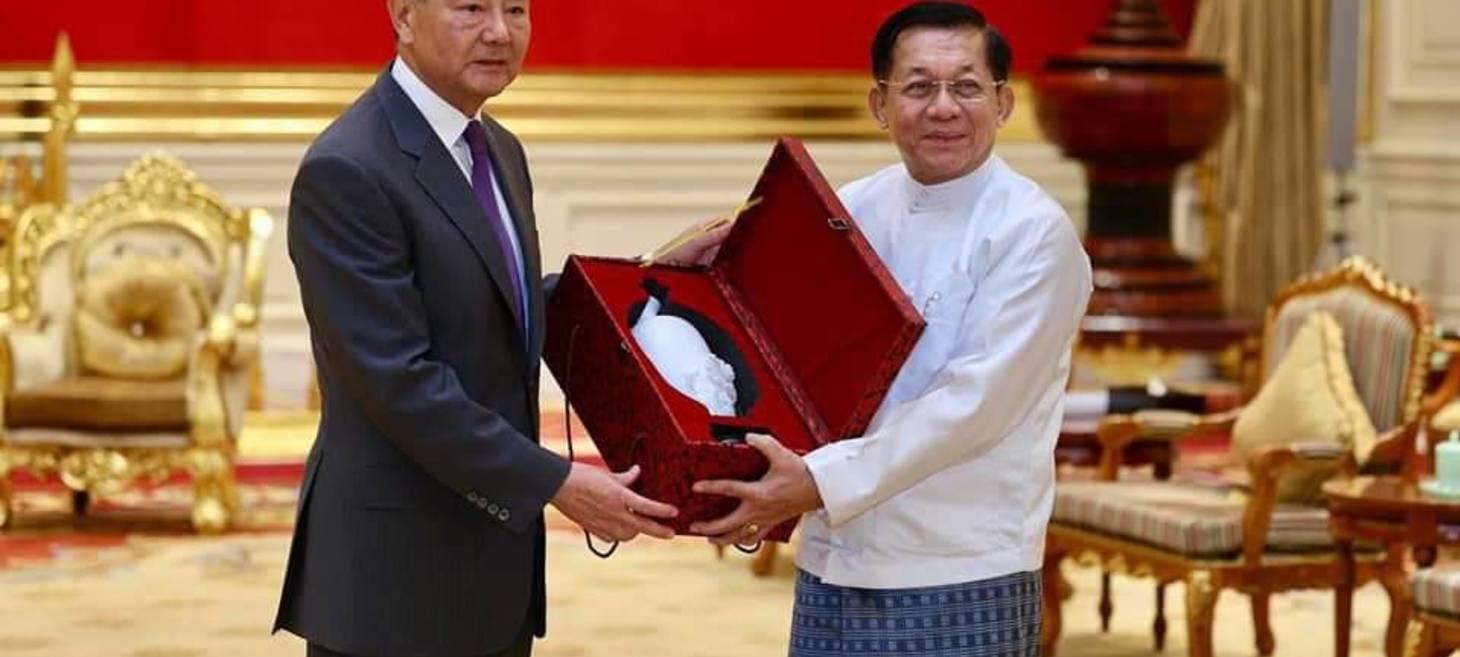
Myanmar junta chief to travel to China next month: sources close to military
Myanmar's junta chief, Min Aung Hlaing, is set to visit China next month, marking his first known trip there since leading the 2021 coup. This visit follows a planned trip after Chinese Foreign Minister Wang Yi's visit to Myanmar in August. China remains a key ally and arms supplier to Myanmar's internationally isolated military regime, which is engaged in widespread conflict across the country. The trip underscores the strengthening ties between China and Myanmar's junta amidst ongoing regional instability and international scrutiny.
Telecommunications

GPS Jamming in Myanmar
Myanmar has become a hotspot for GPS jamming in Asia, with significant interference affecting satellite-guided navigation systems, particularly in the southern region. This jamming poses risks to aviation, potentially causing flight deviations and missed approaches. The surge in jamming is attributed to nation-states aiming to protect military targets from drone and missile attacks. Recent drone strikes by opposition forces, including the People's Defense Force, have targeted key military sites, prompting the military to enhance its drone capabilities. Despite the heavy GPS jamming, there have been no reported navigation disruptions for civilian or military aircraft in the affected areas. The situation underscores the growing use of electronic warfare in Myanmar's ongoing conflict.
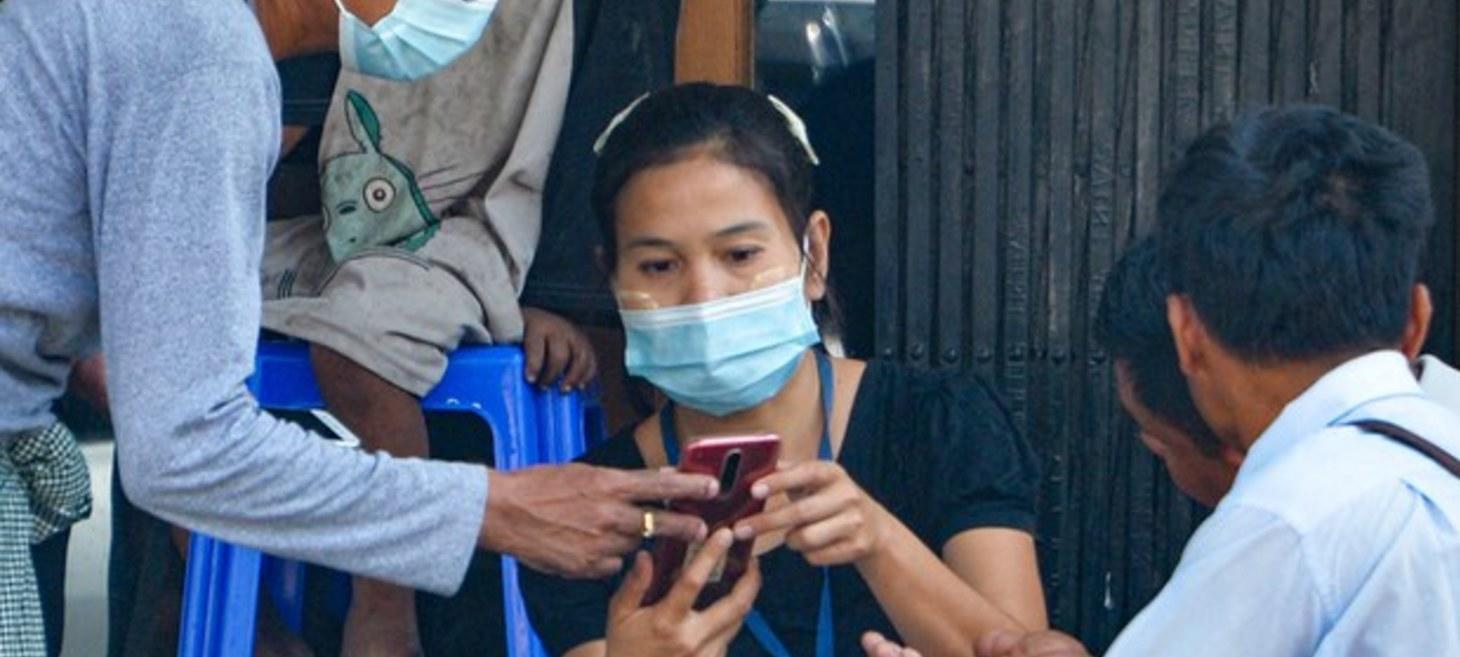
Myanmar’s internet now as restrictive as China’s: report
According to Freedom House's latest report, internet freedoms in Myanmar have deteriorated to levels comparable to China, marking the first time in a decade that any country has ranked as low as China in terms of internet freedom. Both countries received a score of 9 out of 100, with Myanmar's decline attributed to the military junta's crackdown on virtual private networks (VPNs) and online expression following the 2021 coup. This represents a significant drop from Myanmar's peak score of 40 in 2014 during a period of democratic elections. The report highlights the military's use of censorship and surveillance to suppress dissent, including the introduction of new technology to block most VPNs. Meanwhile, China continues to isolate its domestic internet and repress dissent, maintaining its position at the bottom of the list. The report also provides a global overview, noting declines in internet freedom in several countries, while Iceland, Estonia, Canada, and Chile are recognized for having the freest internet environments.